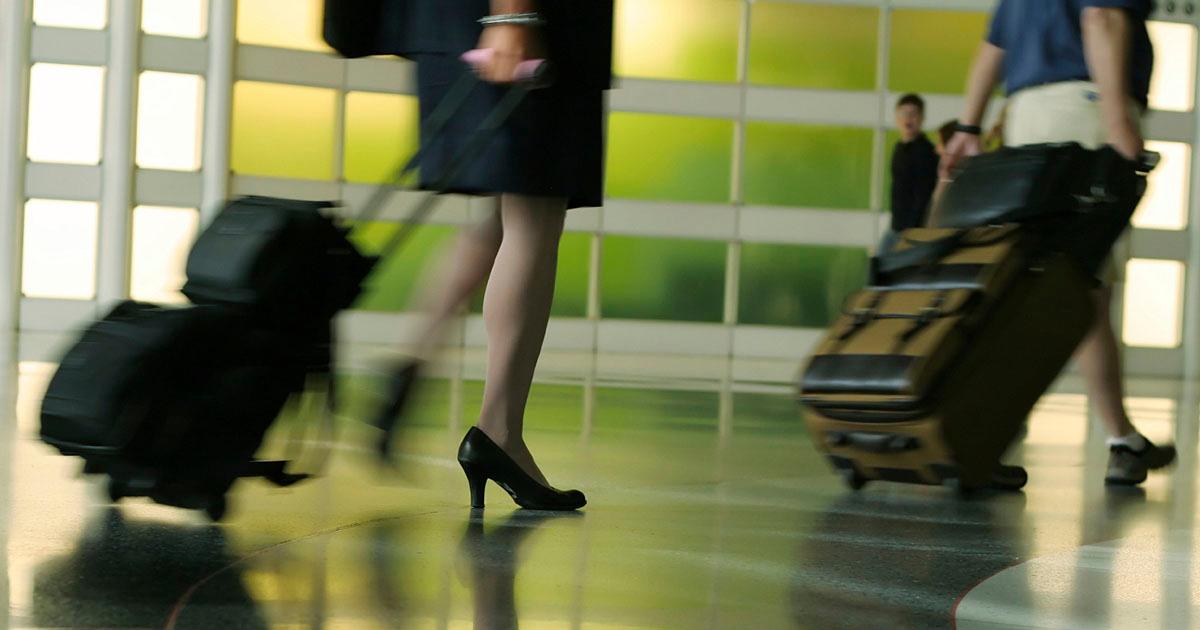You’ve spent months (or more) meticulously planning the myriad details for a big event. It looks as though everything is going to go great, but there’s always a hitch, right? This time, a group of stubborn folks (for good or bad) are butting heads in Washington, D.C., resulting in the longest-ever U.S. federal government shutdown.
The ongoing government shutdown has the potential to introduce various problems for meeting and event industry professionals, the most visible of which is complicating transportation—specifically air travel. On Monday the Transportation Security Administration (TSA) reported unscheduled absences from 7.6 percent of employees—more than double the rate from a year ago. Unsurprisingly, the TSA has even had its meetings landscape disrupted due to the government shutdown—last week, a training event for more than 300 frontline TSA staffers was cancelled.
Over the weekend, Miami International Airport (MIA) became the first major hub to close a concourse, due to a shortage of TSA screeners, thanks to the shutdown. This closure was only part-time—Concourse G and all of its concessions and facilities closed at 1 p.m. for outbound flights on Saturday and Sunday. Miami-area Unite Here representative Wendi Walsh told the Miami Herald that there’s concern the MIA closure will expand if the government shutdown continues. On Monday, Concourse G reopened.
At Houston’s George Bush Intercontinental Airport (IAH), the Terminal B security checkpoint was shut down Sunday afternoon, again, due to a lack of workers reporting for duty—duty for which they’re not currently being paid. (An increased number of TSA workers have called in sick to protest the shutdown, while others are actually quitting their jobs, according to a statement last week from Hydrick Thomas, head of the American Federation of Government Employees’ TSA Council.)
In concert with extensive weekend snowfall in the Washington, D.C., metro area, Washington Dulles International Airport (IAD) closed one of its two main TSA checkpoints on Monday. The weather challenge was given as the impetus for these closures—and, as such, the official story on Monday explained this as a one-day closure—but this probably wouldn’t have happened if it didn’t coincide with the government shutdown.
Although no terminals or concourses have yet been closed at Hartsfield-Jackson International Airport (ATL) in Atlanta, the bottleneck was apparent with obscenely long security lines causing travelers to take to social media to warn others about delays and vent about missing flights. Twitter user iam_Legendary1 shared Monday morning, “Main Checkpoint waiting lines around well over 1 hour long @ATLairport get here 3 hours early for your flights!!!” With no real sign of politicians doing anything more than politicking, this is not a good sign for the thousands of people expected to travel through ATL for Super Bowl 53 in less than three weeks. (To be clear, some sources indicate the limited TSA staff at ATL is also a result of a particularly bad jump in local influenza cases.)
Travelers at ATL and at other hubs, such as Oakland International Airport, have also shared updates on TSA Precheck closings, presumably a move by the TSA to serve as many people as possible. But Precheck availability remains highly variable on an airport-to-airport and terminal-to-terminal basis (Chicago’s Midway International Airport, for instance, reported Monday afternoon its TSA Precheck remained open). Even using Precheck, some travelers complained about hour-plus wait times. Although these massive delays don’t appear to be as widespread across the nation as the headlines may lead you to believe (and are fluctuating constantly), without intervention, the complications will only compound as the shutdown continues.
Karen Cobuluis, CMP (MPI At Large), meeting and marketing coordinator, National Emergency Management Association, says her group expects meeting/event travel to be impacted by the ongoing shutdown and they will be communicating with attendees as the situation continues.
“We have a meeting in early February as well as a national forum March 29-April 2 and we are urging participants attending the February meeting to be aware of potential long lines at airports, screening delays and so forth if the shutdown is still in effect,” Cobuluis says.
But the potential transportation hiccups are just the beginning. For groups like Cobuluis’, which has a great deal of involvement with federal employees and organizations, the shutdown upends standard operating procedure.
“Our more immediate concern is with speakers and discussion topics. NEMA represents state emergency management officials so we work closely with FEMA, Department of Homeland Security, Health and Human Services and other federal agencies on disaster and emergency preparedness, planning, response, recovery and mitigation—so many of our policy and issue discussions have a federal component,” she says. “At this time, we are unable to confirm speakers and meeting participates from effected agencies which may impact our discussion topics. We are developing Plan B agendas for both meetings, just in case.”
For meetings scheduled later in spring and summer, she says her team will “consider appropriate steps” as those get closer, should the shutdown persist.
MPI Blog

